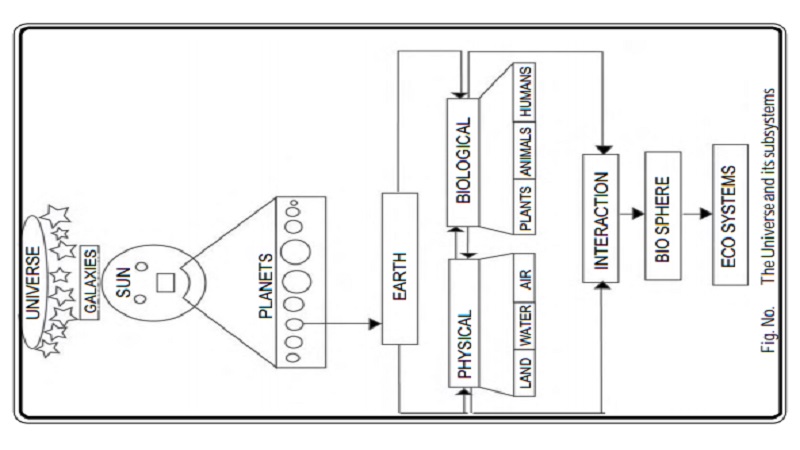Chapter: 11th 12th std standard Geography earth space Higher secondary school College Notes
Earth System Science

EARTH SYSTEM SCIENCE
In the Solar System, our Earth is a unique planet because of the life forms that exists on its surface. Somewhat more than a decade ago, it was recognized that the Earth is a sub system in which, its nonliving elements such as oceans, atmosphere, and land and the living parts are all connected. While accepted by many, this working hypothesis seldom formed the basis for global change research. Little understanding existed of how the Earth worked as a system, how the parts were connected, or even about the importance of the various components of the system. Over the intervening years, much has been learned. In many respects, former uncertainties about the nature and future course of global change have been reduced, in others, the realization that uncertainty is an inherent part of the system has gained credibility.
Over the last thirty years, the understanding of how humans are bringing about global change has undergone a quantum jump. Attempts to separate natural and anthropogenically induced variability in the Earth System have proved to be successful in many respects. Largely through a significant increase in the ability to unravel the past history, our understanding of the natural dynamics of the Earth System has advanced greatly. It is now clear that global change is one of the paramount environmental issues facing humanity at present. Due to a decade of global change research, some of the important research findings that have emerged are as follows :
1. Earth functions as a system. This system has components and controls the system themselves. Living organisms interact with land, water and atmosphere and create the planetary environment.
2. Global change is much more than climate change. It is real, it is happening now, and it is accelerating. Human activities are significantly influencing the functioning of the Earth System in many ways. Anthropogenic changes are clearly identifiable beyond natural variability and are equal to some of the great forces of nature in their extent and impact.
3. Global change cannot be understood in terms of a simple cause/ effect paradigm. Because, the human inventions and technology multiply the interacting effects that cascade through the Earth System in complex ways. Cascading effects of human activities interact with each other and with local, and regional, scale changes in multidimensional ways.
So, understanding a changing Earth demands an effective framework between the social and natural sciences. One such framework is the concept of an Earth System introduced by a Russian mineralogist, Vladimir Vernadsky, in the year 1920s. According to him, 'Earth's environment is an integrated global system with significant connections among its atmosphere, ocean, land and living biota'.
Related Topics